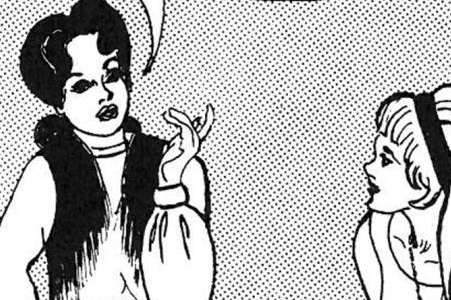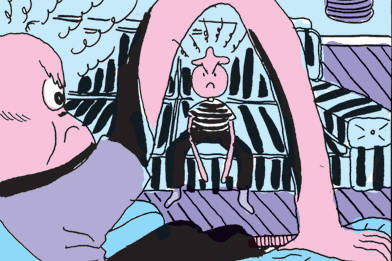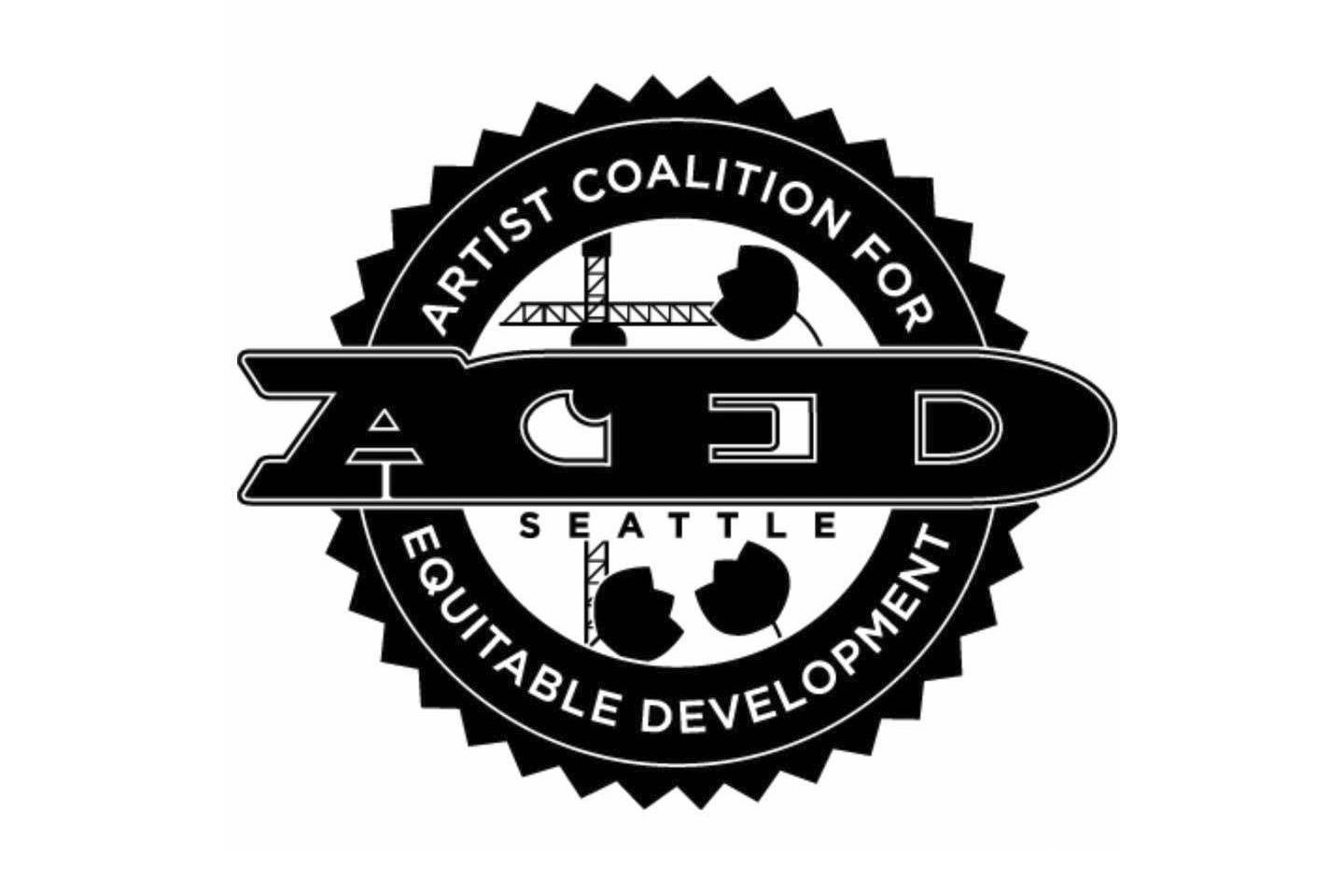Sausage isn’t a staple of French cuisine. Despite that, somehow, the jurors at the 43rd annual Angoulême International Comics Festival failed to nominate a single female artist for its Grand Prix award this year. Thirty nominations, 30 dudes. Dick-gazing nearsightedness in comix isn’t new, though. Back in the early ’70s during the birth of alt-comix in San Francisco, cartoonist Trina Robbins found herself locked out of a supposedly “countercultural” movement that amounted to nothing more than another stupid boys’ club. So she started her own club. It made herstory.
A panel of “Breaking Out” from ‘It Ain’t Me, Babe.’ Courtesy Fantagraphics
It Ain’t Me, Babe, a one-off comic book published with Robbins at the helm in 1970, was the very first entirely produced by women. One of the book’s highlight strips, “Breaking Out,” features classic female comic characters like Little Lulu, Betty and Veronica from Archie, Supergirl, and Petunia Pig revolting against male oppression, bonding together “into small groups not unlike witch covens of old,” dropping acid, and busting a hole in a women’s prison. The book served as a springboard for what would become a groundbreaking serial anthology and artist collective, Wimmen’s Comix, which would launch an all-star roster of renowned female cartoonists’ careers during its 20-year run. Collected by Seattle comics publisher Fantagraphics, The Complete Wimmen’s Comix, out this week, is a gargantuan, 728-page, two-volume collection that, taken altogether, stands as a founding primary document in the alt-comix lineage, period. R. Crumb be damned.
The breadth of work here is staggering. Artists weave intricate sci-fi/fantasy narratives about the death of matriarchal religion (there are lots of witches). They paint heartbreaking portraits of terrifying back-alley abortions. They skewer degrading domestic expectations with laugh-out-loud strips. They relate groundbreaking tales about homosexuality (issue #1 was the first comic to portray an out lesbian). They tell spare-no-detail stories of sexual awakening. And of course there’s plenty of scenes of women just generally kicking ass. In issue #12, they do it all in 3-D.
While the books are an eye-opening historical window, they also feel remarkably fresh in their take-no-prisoners ferocity. While reading, I couldn’t help but think that some of these panels would absolutely slay on Tumblr today. Out now on Fantagraphics. $100. Not for children.
Kelton Sears is Culture & Comix Editor for Seattle Weekly. He can be reached at ksears@seattleweekly.com. Follow him on Twitter. Get more from your favorite writers with our weekly newsletters.








